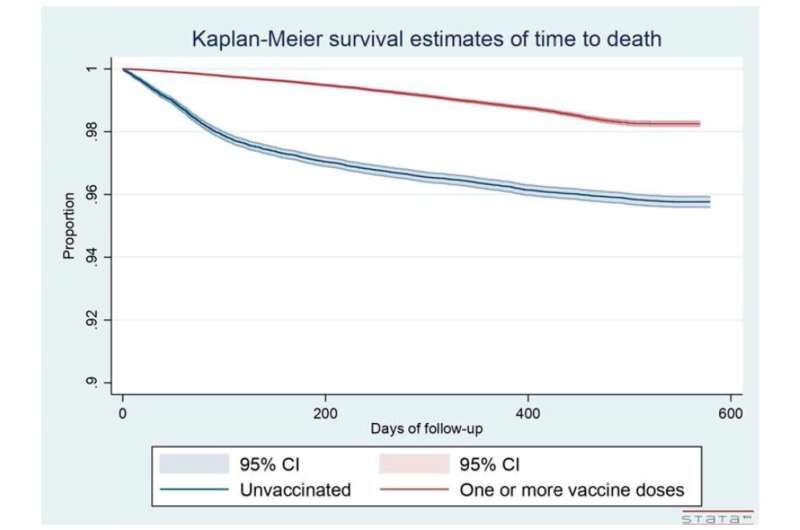This article has been reviewed according to Science X's editorial process and policies. Editors have highlighted the following attributes while ensuring the content's credibility:
fact-checked
proofread
COVID-19: No increased risks of adverse events found for vaccinated people

COVID-19 vaccines did not cause an increased risk of adverse events such as heart attack, stroke, cardiac arrest, myocarditis, pericarditis, and deep vein thrombosis. This was revealed by a study published in the journal Vaccines. The study was coordinated by Lamberto Manzoli, a medical epidemiologist and professor at the Department of Medical and Surgical Sciences of the University of Bologna.
The research also involved scientists from the University of Ferrara and the Local Health Authority (ASL) of Pescara. It monitored the entire population of the Italian province of Pescara for eighteen months, from January 2021 to July 2022. Researchers collected inhabitants' health data and analyzed the frequency of a number of serious diseases such as cardiovascular disease, pulmonary embolism and thrombosis. The investigation showed that none of the diseases examined were found to be more frequent among the vaccinated than among the non-vaccinated.
"The results obtained clearly show that there was no increased risk of serious diseases among the vaccinated," says Manzoli. "There were isolated adverse cases, but the safety profile of the vaccines used during the pandemic was confirmed: it is now important to continue the follow-up over a longer period."
The study is currently the only one in the world that monitored the population for more than a year, taking into account numerous factors including age, gender and clinical risk of the participants. More specifically, the results obtained show that both deaths registered and the occurrence of the diseases examined were less frequent among vaccinated persons, regardless of gender, age and clinical risk profile.
The analysis also confirmed that vaccinated persons who contracted COVID-19 were more protected against the coronavirus than those who recovered after contracting the disease but were not vaccinated. Conversely, a higher incidence of the diseases considered was found among those who had not contracted COVID-19 and had only one or two doses of the vaccine, compared to those who had three or more doses.
"This counterintuitive finding is due to an epidemiological bias caused by the restrictions implemented during the emergency," explains Manzoli. "The data gathered show that 83.2 per cent of the vaccinated population who did not contract COVID-19 received at least three doses of vaccine. Those who received only one or two doses did not complete the vaccination cycle either because they died or because they were deterred by the onset of a disease."
More information: Maria Elena Flacco et al, COVID-19 Vaccination Did Not Increase the Risk of Potentially Related Serious Adverse Events: 18-Month Cohort Study in an Italian Province, Vaccines (2022). DOI: 10.3390/vaccines11010031



















